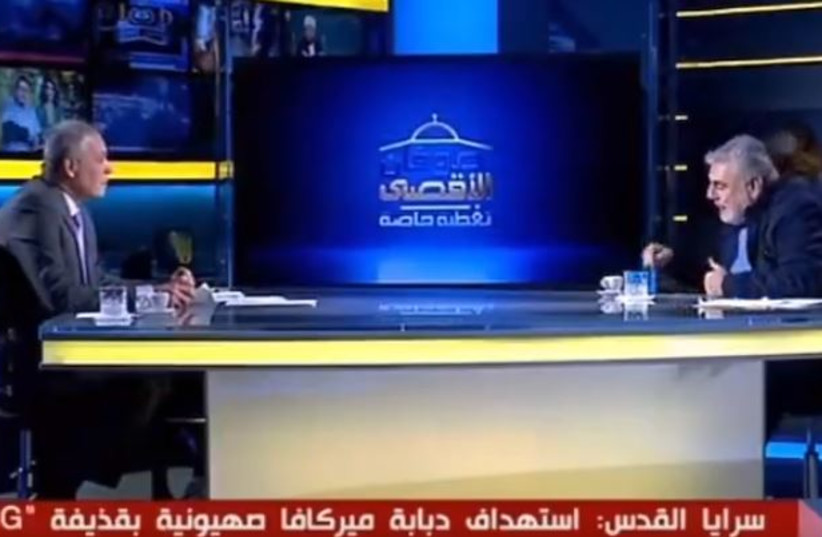For the first time since the outbreak of the war two and a half months ago, a senior official in Hezbollah provided an explanation of the Lebanese terrorist organization's readiness to launch an all-out war against Israel, N12 reported on Saturday.
Nawaf al-Moussawi, a Shia member of Hezbollah’s bloc in the Lebanese parliament, explains that following Hamas's terror attack on October 7, Hezbollah approached the Gaza-based Islamist organization and basically asked whether they should begin a war against Israel on the northern border.
"We asked our brothers in Gaza, 'what can we do?' If we initiate an all-out war in Lebanon – will it stop the fighting in Gaza or not?" al-Moussawi said in an interview broadcast on Al-Manar TV, the official channel of Hezbollah. "Their answer was no, it will not stop; the fighting in Gaza will not cease. Only with a victory over Israel within Gaza," he continued.
Since the beginning of the war in Gaza, Hezbollah has been attacking IDF forces and Israeli civilians in the northern border region on a daily basis.
There have consequently been intense exchanges of fire between the terror organization in Lebanon and the IDF, resulting in significant damage in both countries and substantial casualties, mainly on the Hezbollah side.

Heavy casualties in Hezbollah
Saturday morning, Hezbollah reported the death of its 122nd fighter from IDF fire since the start of the conflict between the two sides, but the estimate is that the number is much higher.
After Hamas's terror attack, many questions and speculations arose about whether it was coordinated and approved by Iran and Hezbollah.
According to a report published days after the attack in the Wall Street Journal, Esmail Qaani, the Iranian commander of the Islamic Republic’s IRGC Quds Force, explicitly gave the green light for the attack.
However, most assessments from various sources suggest that Hamas acted independently and did not inform its regional terror partners about the specific details of its plans.
The official assessment of intelligence and security agencies in Israel and the United States is that Iran and Hezbollah did not have precise knowledge of Hamas’s plan to carry out the attack.
Along with Nawaf al-Moussawi’s statements, there is an assessment that within Hamas, there has been and exists an expectation for Hezbollah to open an all-out war against Israel, but Hezbollah refrains from doing so.
One claim that arises is that Hezbollah, acting as a proxy for Iran, chooses not to risk a significant blow to its power for the sake of the Palestinian struggle.
Iran and its terror proxies in the Middle East do not hide the connection they maintain with Hamas and the support they have provided and continue to provide to the terror organization.
Since the outbreak of the war, senior figures in Hamas, such as Ismail Haniyeh, Saleh al-Arouri, and others, have met with senior officials in Iran, Hezbollah, and the Islamic Jihad.
Meanwhile, the Houthi rebels in Yemen, loyal supporters of Iran, have engaged in armed confrontations against Israel in support of Hamas.
